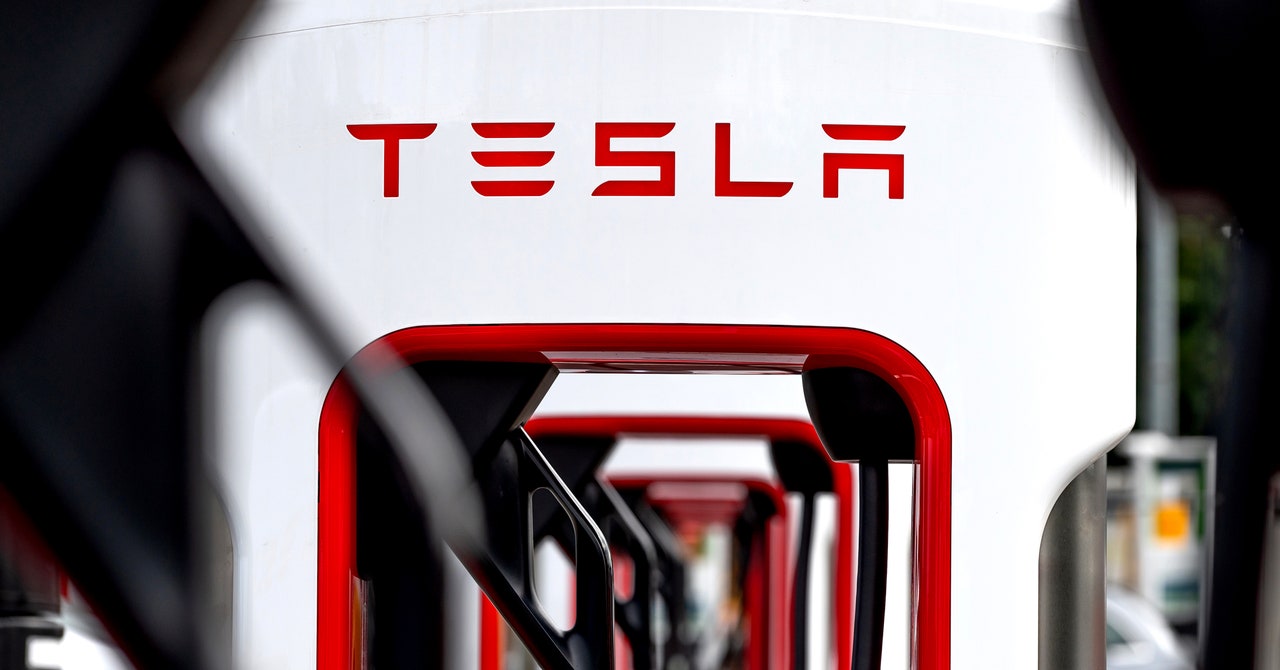Review sản phẩm
Cuộc đua nhanh điền vào khoảng trống năng lượng xung quanh các trạm sạc siêu nhanh của Tesla
Giới thiệu As Questions Swirl Around Tesla’s Superchargers, the Race Is On to Fill the Power Gap
Khi câu hỏi xoay quanh các trạm sạc siêu nhanh của Tesla, cuộc đua để điền vào khoảng trống năng lượng đã bắt đầu.
Câu chuyện xoay quanh các cổng sạc siêu tốc của Tesla đang tạo ra nhiều câu hỏi, nhưng cuộc đua để đáp ứng nhu cầu về năng lượng đang diễn ra sôi nổi. Queen Mobile mang đến cho bạn những sản phẩm chất lượng và dịch vụ tốt nhất. Đừng bỏ lỡ cơ hội sở hữu sản phẩm tốt nhất tại Queen Mobile ngay hôm nay! #QueenMobile #đánhgiásảnphẩm #mua_ngay #nănglượng #teslachargers
Mua ngay sản phẩm tại Việt Nam:
QUEEN MOBILE chuyên cung cấp điện thoại Iphone, máy tính bảng Ipad, đồng hồ Smartwatch và các phụ kiện APPLE và các giải pháp điện tử và nhà thông minh. Queen Mobile rất hân hạnh được phục vụ quý khách….
_____________________________________________________
Mua #Điện_thoại #iphone #ipad #macbook #samsung #xiaomi #poco #oppo #snapdragon giá tốt, hãy ghé [𝑸𝑼𝑬𝑬𝑵 𝑴𝑶𝑩𝑰𝑳𝑬]
✿ 149 Hòa Bình, phường Hiệp Tân, quận Tân Phú, TP HCM
✿ 402B, Hai Bà Trưng, P Tân Định, Q 1, HCM
✿ 287 đường 3/2 P 10, Q 10, HCM
Hotline (miễn phí) 19003190
Thu cũ đổi mới
Rẻ hơn hoàn tiền
Góp 0%
Thời gian làm việc: 9h – 21h.
KẾT LUẬN
Với câu hỏi xoay quanh hệ thống sạc nhanh của Tesla, cuộc đua để bổ sung lỗ hỏng năng lượng đang bắt đầu. Đối thủ cạnh tranh đang cố gắng tìm giải pháp cho vấn đề cung cấp năng lượng cho ô tô điện, tạo ra cơ hội hấp dẫn cho người mua.
Familiar says Revel is less concerned about the material effects of the Tesla layoff than the “cultural impact, tacking onto pessimism around EVs recently.”
New York City officials seem confident someone will fill in the Tesla-sized charging gap. City programs ensure “that any provider doing business in NYC has a reliable, growing customer base, and one provider backing out of a lease is a great opportunity for another to snap it up, especially if that site is power-ready,” a spokesperson for the NYC Taxi and Limousine Commission, Jason Kersten, said in a statement.
In Maspeth, Gordon says he’s already heard from several charging companies interested in leasing the land once intended for Superchargers.
Power Puzzler
In recent months, the Tesla Supercharger network has been cited as a bright spot in a company troubled by new competition from Chinese car companies and legacy automakers, questions around the slackening electric vehicle market, falling revenues, and most recently, a series of rolling layoffs. Tesla customers have said the company’s public charging stations are generally reliable and well maintained, and a huge selling point for Tesla-curious buyers. Last summer, the energy research organization BloombergNEF predicted that Tesla could bring in $7.4 billion in charging revenue by the end of the decade, constituting some $740 million in profit—not a shabby side hustle for an auto manufacturer.
At the time of the reported layoffs, Tesla’s charging team had just pulled off a decisive coup by convincing the entire US auto industry to use its plug. In return, Tesla dangled to other automakers—and their customers—a public charging network that’s remarkably reliable and well developed, especially when compared to the shoddier records of their closest charging rivals.
In financial filings submitted just last week, Tesla previewed its expansion plans for its charging network. As other automakers adopt the Tesla plug, “we must correspondingly expand our network in order to ensure adequate availability to meet customer demands,” the company wrote.
Tesla last fall officially handed over work on the plug standard to the Society of Automotive Engineers, a global standards organization. Jeff Laskowski, a spokesman for the group, said that work to finish that plug standard was “well underway” and expected to wrap up by the end of this year.
It is not unusual for companies given government grants to change direction or give them back, sources involved in government grantmaking told WIRED. In statements and interviews, those involved in building, selling, and developing electric vehicle charging said that Tesla’s sudden about-face on charging might affect the short-term future of public charging infrastructure, but not the long-term electric transition.
A spokesperson for the federal Joint Office of Energy and Transportation, the authority overseeing electric vehicle infrastructure in the US, said that, because each individual state runs a competitive process to choose who will build charging networks, “we don’t expect individual business decisions to impact EV charging projects funded by the Bipartisan Infrastructure Law,” the 2021 federal legislation that earmarked money for the charging infrastructure.
Industry players said that while Tesla’s move was very unexpected, it could signal that the automaker believes other charging firms have caught up to it and are ready to take on the responsibility—and the capital costs—of building out the network that will make electric cars go.
Competitors said the abrupt shift might even be an opportunity. In a statement, Sara Rafalson, the executive vice president of policy and external affairs at the charging company EVgo, said her company would soon begin to build Tesla plugs onto its chargers. “We welcome the opportunity to serve more Tesla vehicles and remain steadfast in our commitment to serve all electric vehicle models,” she said.
UPDATE 5/1/2024 9:30 PM ET: This story has been updated to clarify the status of Revel’s lease talks in New York City.
Xem chi tiết và đăng kýXem chi tiết và đăng kýXem chi tiết và đăng ký
Khám phá thêm từ Phụ Kiện Đỉnh
Đăng ký để nhận các bài đăng mới nhất được gửi đến email của bạn.





